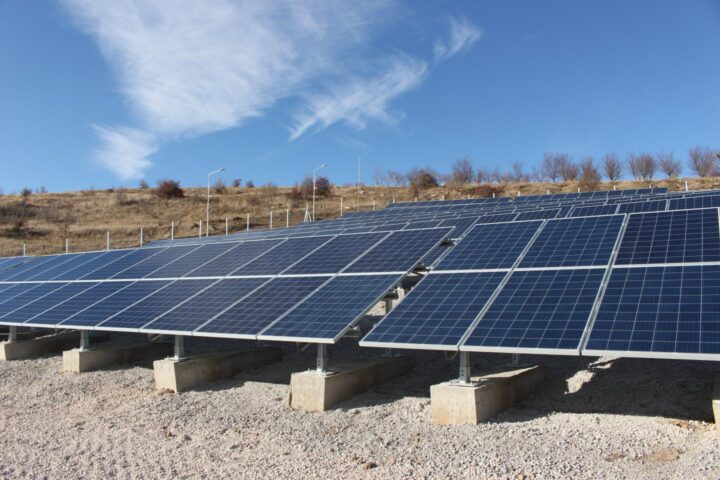The spectre of energy poverty looms large for many Cypriot families, as economists estimate that one in four households are at risk, even the traditionally safe middle class.
With electricity bills inflated every couple of months and fuel prices hitting an all-time high, many families are in trouble, trying to keep tabs on every last euro.
Electricity prices in Cyprus have never been higher.
Households have to pay at the end of this month a staggering 28.86 c€/kWh, the highest it has ever been, an increase of 111% from July 2021 (13.67 c€/kWh) and an increase of 190% from July 2020 (9.94 c€/kWh).
Fuel prices have also risen by a whopping 50% since the beginning of the year, with Diesel breaking the €2 barrier in early July, while unleaded 95 is close to €1.90.
Price increases are killing off consumer purchasing power and economic growth.
In comments to the Financial Mirror, economist and advisor to presidential candidate Andreas Mavroyiannis, Panos Loizou Parras said a quarter of households could fall into energy poverty.
Parras argued that although there is an absence of official data on energy poverty in Cyprus, European statistics indicate how dire the situation is.
“According to Eurostat data, one in five people in Cyprus said they could not keep their home adequately warm in 2020.
“In the survey, Cyprus ranked third to last as 21% of residents said they could not afford to heat their homes.”
He said that with fuel prices and electricity shooting through the roof, “there is no way these people could keep their heads above the energy poverty line”.
Eurostat said that 21% or 180,000 households could not afford to pay for heating, while the EU average was 8%.
“The matter is made worse with rising inflation, which hit a 40-year high in June, reaching 9.6%.
“This means that a household loses around €94 for every €1000 coming in.
“The vast majority of households have already started sticking to the essentials,” said Parras.
Thousands of households are on the verge of falling into energy poverty as they cannot pay their rising electricity bills, leaving them in the dark as the supply is cut off.
According to Energy Minister Natasa Pilides, in the first six months, some 5,200 households were left without electricity as they could not pay their bills on time.
And power bills are expected to be 25% higher for June and July.
Parras explained the increase in fuel and energy prices is affecting households in Cyprus much harder than their fellow EU citizens, as Cypriots are almost entirely dependent on their private vehicles.
“The government needs to adopt measures that will not only support those who are already under the poverty line, or at immediate risk such as pensioners, and people living off the Minimum Guaranteed Income, but those earning what was considered until recently ‘a decent wage.”
The economist said the government needs to intervene to protect the middle class before it shrinks out of existence due to high energy costs.
“The truth is that a reduction in VAT on electricity and even a cap on fuel prices will not save the day.
“Authorities need to step in with innovative ideas, enhancing the public transport network, and a cap on essentials such as food and medicines will need to be introduced.
“These are unprecedented times, and authorities need to protect low-income families, and those with a decent income, being pushed below the energy poverty line”.
Inflation
Bank of Cyprus chief economist Ioannis Tirkides said the government must urgently help lower-income households, as hiking energy prices and inflation has hit them much harder.
“Inflation is running higher for longer, and we must acknowledge that it affects different groups of people differently.
“Inflation is calculated as the rate of increase of an index made up of several hundred goods and services that the average household typically purchases.
“So, inflation as measured does not reflect the increase in the cost of living for all the population, but for the average representative household,” explained Tirkides.
He said governments benefit as inflation increases their indirect and direct tax revenues, allowing them to roll out more measures to support lower-income families.
“The VAT, for instance, is a proportional tax; hence as market prices rise, the tax in the price also rises.
“As nominal incomes rise with inflation on average, taxpayers are pushed into higher income tax brackets, which means more tax revenues.
“The government, therefore, should give back some of these gains to achieve social and economic objectives.
“There are horizontal measures such as steep reductions in energy taxes including the VAT, and reductions in electricity tariffs for longer periods.”
Meanwhile, trade unions have urged the government to improve support measures while stopping profiteering from importers of fuel products.
Talking to the Financial Mirror, Pavlos Kalosinatos, the head of the left-wing PEO union’s labour studies office, said fuel prices in Cyprus are going up because importers are allowed to push up prices as they see fit without having to answer to any authority.
“While crude oil prices and other fuel product indices have recorded drops in the past weeks, we have seen companies here push prices to new heights,” said Kalosinatos.
He argued that the state needs to intervene and determine where stakeholders are abusing the system.
Right-wing trade union federation SEK’s Christos Karides, head of the Financial Studies department, said the government has to take swift decisions to combat crippling energy prices before many of the working class falls into energy poverty.
“We needed solutions yesterday.
“This is a huge problem, threatening the very livelihood of pensioners and younger workers who have joined the workforce for salaries of as little as €800,” said Karides.
He said that unions want to see solutions that would provide cheap transport on a ‘reliable’ public network system.









